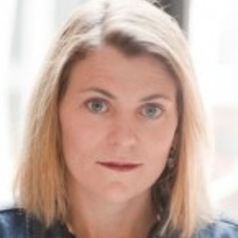With the rise of disinformation, third-party fact checking has grown into a billion-dollar global industry. But debunking false claims is time-consuming and costly, and recent developments suggest it may have hit its peak and is slowing down.
The ABC’s recent announcement that it will dissolve its third-party fact-checker partnership with RMIT University, known as ABC RMIT Fact Check, and replace it with an in-house unit called “ABC News Verify”, suggests Australia is not immune to global trends.
Duke Reporters’ Lab’s most recent census of third-party fact-checking units across the world found the number of active units fell from 424 in 2022 to 417 in 2023. While this is a small drop, it signals the first contraction in the sector since its initial census in 2014, which recorded a mere 59 units.
Is this cause for concern?
Many studies have shown that third-party fact checking works to disabuse people of false claims in the media and online.
“Third party” refers to the external verification of controversial claims by an organisation independent of the initial publishing outlet.
But a growing number of studies also show the limitations of fact checking in countering the spread of mis- and disinformation.
Our recently published study found that Australian third-party fact checkers were highly trusted. However, even after receiving and trusting a fact check – in this case about a false social media post involving former prime minister Scott Morrison during the 2022 floods – a third of respondents said they would engage with the false information anyway.
They did so mostly for political reasons, known as motivated reasoning. It tells us that presenting facts alone is not enough to stop people sharing falsehoods, and it may be one reason why global momentum behind third-party fact checking is slowing.
The Australian fact checking industry has a short and rocky history, beginning in 2013 – a decade after the United States. Early adopters like PolitiFact Australia, ABC Fact Check and The Conversation’s FactCheck have come and gone, in part because the work is both time- and resource-intensive.
In the case of the ABC, its original in-house unit was axed following 2016 Coalition budget cuts. It then got a new lease of life in partnership with RMIT University in 2017.
Our study tested public trust in four current Australian fact checkers: RMIT ABC Fact Check, RMIT Factlab, AAP and Reuters Fact Check – an international fact checker operating in Australia.
Overall, trust was highest in the soon to be disbanded RMIT ABC Fact Check. But there was one important exception: respondents who strongly identified as right-wing on the political spectrum.
These voters regarded ABC RMIT Fact Check as the least trusted. This finding mirrors studies about media trust in Australia, which also finds the ABC is ranked highest overall, but lower for right-wing partisans.
Our study’s findings suggest that accusations of left-wing bias levelled at the ABC, particularly by right-wing partisans, may intersect with its fact-checking role with RMIT, and foreshadows criticisms that its new unit might encounter.
This is because the politicisation of fact checking – a longstanding feature of the sector in the US – has reached Australia.
To counter concerns of fact-checking bias, the International Fact-Checking Network (IFCN) was established in 2015 to try to ensure standards of impartiality and rigour. Meta has since made IFCN accreditation a requirement of partnership when it signs up third-party fact-checkers to test doubtful claims on its social media sites.
During the referendum campaign, the impartiality of third-party Australian fact checkers drew headlines.
In its report titled the “Fact Check Files”, Sky News Australia accused RMIT FactLab (a separate entity from RMIT ABC Fact Check) of working with Meta to “censor Voice debate”. As reported by The Conversation at that time, the story was the second most-shared article on social media involving the referendum according to Meltwater data, reaching millions of users.
The story focused particularly on RMIT FactLab’s fact-checking of Sky’s own reports, which is found to contain falsehoods. The Sky report also revealed the factchecker’s IFCN accreditation had expired – a breach of Meta’s own terms and conditions. This led the social media giant to temporarily suspend RMIT FactLab from its paid role fact checking Meta’s social media content.
The conservative Institute of Public Affairs (IPA) later added to the controversy, releasing a report in November 2023 arguing that RMIT ABC Fact Check, RMIT FactLab and AAP FactCheck had all unduly focused their efforts on the “no” campaign’s claims, resulting in a form of censorship.
In a soon to be published survey of 3,825 Australians after the referendum in late November, we found trust in RMIT FactLab had suffered as a result?. The survey also showed about a quarter of respondents reported using third-party fact checkers during the Voice campaign, and overall public trust in fact checkers was high.
However, among self-identified right-wing supporters, we see a different story with increased levels of distrust, particularly in response to RMIT FactLab – the central target of the Sky News reports.
RMIT FactLab recorded the highest levels of distrust among conservatives, followed by RMIT ABC Fact Check.
The claims of bias against RMIT FactLab follow the path of politicisation and polarisation seen in the well-established US fact-checking sector. This trend further underscores the role of motivated reasoning in opinion formation and the insufficiency of relying solely on fact-checkers – whether external or internal – to combat fake news.
Effective mitigation of misinformation and disinformation requires a multifaceted approach. This includes fact checkers, but also measures such as bolstering public media literacy, regulating platforms, supporting quality journalism, and fostering collaboration among policymakers, politicians, academics, technology platforms, and civil society to promote responsible discourse.



 BTC Flat at $89,300 Despite $1.02B ETF Exodus — Buy the Dip Toward $107K?
BTC Flat at $89,300 Despite $1.02B ETF Exodus — Buy the Dip Toward $107K?  Nasdaq Proposes Fast-Track Rule to Accelerate Index Inclusion for Major New Listings
Nasdaq Proposes Fast-Track Rule to Accelerate Index Inclusion for Major New Listings  Elon Musk’s Empire: SpaceX, Tesla, and xAI Merger Talks Spark Investor Debate
Elon Musk’s Empire: SpaceX, Tesla, and xAI Merger Talks Spark Investor Debate 































